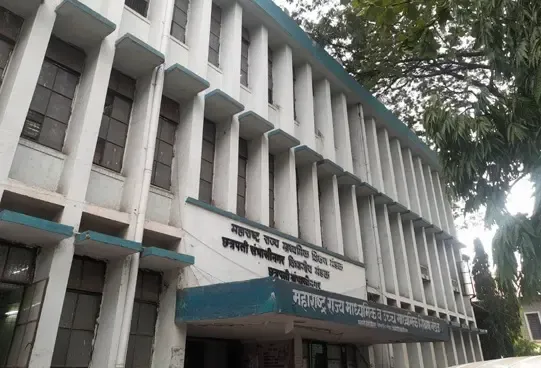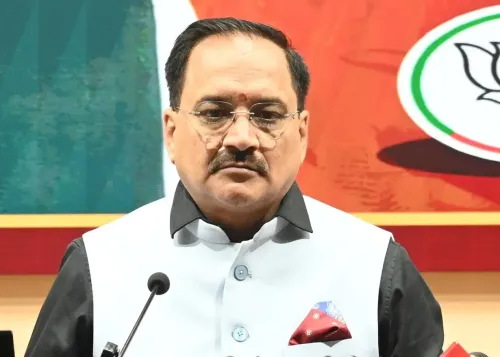Supriya Sule Critiques CBSE Pattern Implementation Impact on Marathi Language and Culture

Synopsis
Key Takeaways
- Supriya Sule opposes CBSE pattern implementation in Maharashtra.
- Concerns raised about the impact on Marathi language and culture.
- Call for government to reconsider the decision.
- Highlighting issues in education quality, such as infrastructure and teacher support.
- Emphasis on the need for stakeholder consultation before major educational changes.
Mumbai, March 21 (NationPress) NCP-SP MP Supriya Sule expressed strong concerns regarding Maharashtra School Education Minister Dadaji Bhuse’s announcement to adopt the CBSE pattern for Class 1 in government schools starting from the academic year 2025-26. She asserts that this move could be devastating to the classical language Marathi, as well as the state’s culture and traditions, and she urged a reconsideration of this decision, which she believes was made without proper consultation with stakeholders.
“Maharashtra boasts a remarkable educational legacy, and it is disheartening to see the government overlook this in favor of adopting external boards’ systems. It appears that the government intends to effectively dismantle the state’s SSC board through this initiative. I am concerned that this decision could erase the unique identity of our Maharashtra, which has a profound educational heritage. This initiative poses a grave threat to our classical language Marathi, along with its culture and traditions. I respectfully request the state government to rethink this decision,” Sule conveyed in her letter to the Minister.
“Disregarding our state’s rich educational history and opting for imitation of external boards is truly troubling. This decision to implement another board's curriculum in this fashion raises concerns about the potential marginalization of our classical language Marathi, which deserves the utmost respect. The impact of this decision could be damaging to our cherished traditions in Marathi literature, art, and culture,” she emphasized.
The NCP-SP representative pointed out that numerous issues need to be addressed for ensuring quality education, such as improving physical infrastructure, increasing the number of teachers, alleviating non-teaching burdens, and resolving ongoing challenges faced by educators.
“It is utterly shameful that unresolved issues are leading teachers to the brink of despair. Even the current examination schedules have faced backlash from various organizations and education experts, who have highlighted numerous technical flaws. Despite this, the Education Department remains resolute in pursuing its agenda. Consequently, this has disrupted travel plans for parents returning from migrations, imposing significant financial strains and inconveniences,” she remarked.
The School Code/MEPS Act stipulates that the complete responsibility for student assessments in private schools rests with the school head or principal. However, she claims that government officials are attempting to undermine principals’ authority without proper consultation, thereby violating established protocols.
Sule indicated a disturbing trend of the government acting arbitrarily, disregarding the need for approval from competent authorities and flouting constitutional provisions, laws, and rules.
“Transferring responsibilities such as curriculum development, textbook creation, and teacher training from the Board to the State Council of Educational Research and Training (SCERT) without involving the legislature epitomizes this arbitrariness. This has led to repeated encroachments upon others' rights,” she asserted.
“In truth, any modifications must receive approval from appropriate authorities, yet this process is being ignored. By granting the SCERT all-encompassing powers, both the Board and Balbharati have been sidelined. This clearly indicates that such a significant decision regarding education was made without consulting experts and scholars in the educational field,” Sule alleged.










